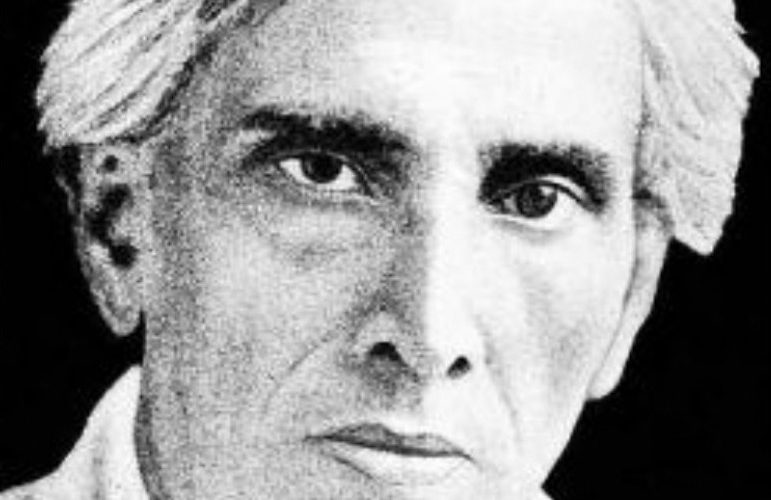Badadidi, A novel in Bengali by Sarat Chandra Chatterjee, Telugu translation by B. Sivaramakrishna; Desi Prachuranalu; Congress Office Road, Vijayawada: Price (old edition) Rs 3.50 pages 88.
Revisiting almost any novel of Sarat Chandra takes me back to the good old college days. We used to frequently pass by this building, Desi Prachuranalu, in Vijayawada and the two names associated with the translation of Sarat’s novels into Telugu, Bondalapati Sivaramakrishna and Shakuntala, come to mind. This kind of nostalgic mention may not be out of place as this column is named “Down the Memory Lane.”
Prior to that in early 60s, from Tenali we visited Vijayawada to attend a maternal uncle’s marriage. The host, the bride’s father was a key figure of Navayuga Films. As soon as I visited their house the first time my eyes were drawn to their huge library and the translations of about thirty Sarat Novels in it. It was a five-day wedding, and without attending a single event of the wedding I embarked on the reading of Sarat Novels, Bada Didi first time, along with it, Srikanth, Vagdatta, Devadasu, Parinita, Viraj Bahu, Charitraheen, and Shesha Prasna. All these novels of Sarat are special for Telugu readers. Many of us even began naming our children with Bengali names ever since. The stories came to us through various media in early television days, Bollywood cinema and Telugu film industry. Sarat stories have become household names thanks to directors like Satyajit Ray in Bengali, Hrishikesh Mukherjee, Basu Chatterjee, Gulzar in Hindi. In fact, Devdas was filmed eight times in various Indian languages.
Sarat Chandra was born on 15th September in 1876 and died on 16th January 1938. He lived in the rejuvenated Bengal just after the Renaissance and had first-hand knowledge of the zamindari system prevalent in those days and the life of women in Bengal just awakening into a new age. He created a world of strong traditional as well as socially aware women. In the process we come across weak male characters as in Devadas and the central character in Bada Didi, Surendra.
Coming to Bada Didi, the opening lines give us an idea of the nature of the central character, (other than Madhavi, called Bada Didi) Surendra in this novel. He is like grass that can fire up or cool down easily. Weak as they were such people need someone to stand behind them constantly to support and keep the fire going. Like a small stick used to push up the wick in the lamp as when it becomes weak some person needs to stand behind him to keep the lamp burning. Endowed with intelligence strength and trust, Surendra cannot entirely take the responsibility of any job. He may do it with great enthusiasm for a while and leave part of it totally unattended.
The son of a lawyer in the western part of Bengal, he studied his MA there living with his father. He was blessed with a stepmother who took good care of him always and with great sense of belonging nags him to do things right way. His friends who visit him often point out to him that she dominates his life too much and repeatedly tell him it is easier to run away from such controls than to live with them constantly. In one weak moment he leaves the house and runs away without telling his family about his whereabouts. He finds it difficult to survive without the support and care provided to him thus far by his stepmother, but decides not to go back. He suffers from homelessness, hunger and suffers distress due to lack of any employment. He chances upon Vraja Lahiri babu, an old zamindar who takes him into his house and asks him to help his son and daughter in their studies. He agrees and settles there. But he was too lazy to teach her. Simply eats and lives on the generosity of his landlord.
The central character in this household is Madhavi, the widowed daughter of the zamindar known to all as Bada Didi. She was married at the age of eleven and was widowed and came to her father’s house when she was sixteen. She lived with her husband only three years. When he was sick and dying, he expresses regret that he was going leaving her alone. Before his death he tells her to spend her life taking care of all the people around her as she did with her husband. The good she would earn thus would help them to be together again. He tells her to lead a righteous and virtuous life. She brings new life to her father’s house and every single person comes to depend on her. Surendra also learns to depend on her for all his needs. She realizes that he was not fulfilling his obligation of teaching her sister as agreed upon. She also finds him very casual in his approach to life and unwilling to work hard or take up any responsibility. Surendra also gets used to getting his tasks done by others. He keeps sending requests to Bada Didi when he needed a new spectacle or a new set of ironed clothes and so on. When she shows signs of irritation with his laziness, he leaves her house and goes back to his homeless state by choice. He meets with an accident and refuses to go back to Vraj babu’s house even after being requested by him. Bada Didi too was distressed that he left the house. Despite his weaknesses, she grew fond of him. Her father tells her that he had gone back to his house with his father. He tells her the story of his leaving the house in anger. He had passed his M.A and was a gold medallist. When his father on the advice of his step mother opposes his plan of going abroad for higher studies he left his house in anger. Bada Didi shares her heart’s secret with her friend Manorama and Manorama could not appreciate Madhavi’s love for Surendra babu
After five years Surendra babu still suffering from the adverse effects of his accident in Calcutta marries Shanti and starts looking after the affairs of Lalthapur, his father’s estate, as it was neglected by the zamindar for a long time. The local officials, such as the manager, misused their powers and started exploiting the people of the area, even harassing women. The people attributed all these crimes to the new zamindar and in their minds, his image was very negative. He was thought of as a cruel and eccentric man. But to people who interacted with him directly, Surendra was a kind-hearted man. Surendra hardly goes to his office. His wife enables this habit as she believes she is protecting his weak heart from stress. Shanti suffers from an insecurity due to his health condition, but when he notices that his manager confiscated his Bada Didi’s house, he was agitated. When he questions him, the manager could not give satisfactory answers and he confirms from his answers that it was indeed Madhavi’s house he occupied illegally. He immediately orders his horse to be readied and rushes to her house. He rides with great stress and high speed. His wounds reopen and he starts bleeding. He comes to know that Madhavi had left by the river route that morning. He follows them and successfully catches up with them and he collapses on the shore calling out to Bada Didi. She hears him and they manage to turn around and take him into the boat. Surendra is taken back to his house along with Madhavi. Surendra tells her as she has banished him from her house, he had banished her from her own house and settled the scores. Madhavi collapses by his side and when she wakes up, she finds Surendra gone.
Her undeclared love for him was guided by her husband’s final words and she followed them in word and deed. She was Bada Didi to everyone in her circle including Surendra. He depended on her with total trust and with a sense of entitlement. Though irritated initially, once he leaves, she could not take him out of her mind and it made her realise her love for him. She confided only in her friend though her father too could understand her attachment. She told him, Surendra was like her kid sister who cannot manage without being supported by her. He also depended on her and that evoked a protective instinct and gradually love. He in turn considered her only as didi, an elder sister, but he was attached to her in ways he could not understand. He was grief-stricken when he came to know that he caused her so much suffering by driving her out her house unwittingly. To him, she was no less than a goddess and he he tries to make his wife understand this respect he feels for her. The story ends on a sad note but highlight’s Bada Didi’s strength of character and regard for the traditional norms followed in society, which always help her to understand her limitations of being a widow. It is a short story with a complex web of values that evoke sadness and in the context of the times the novel was written. And there is that ‘aha’ moment, when he comes into her boat. He asks her, “Are you Bada Didi?” and she responds with, “I am Madhavi.”
*









Add comment